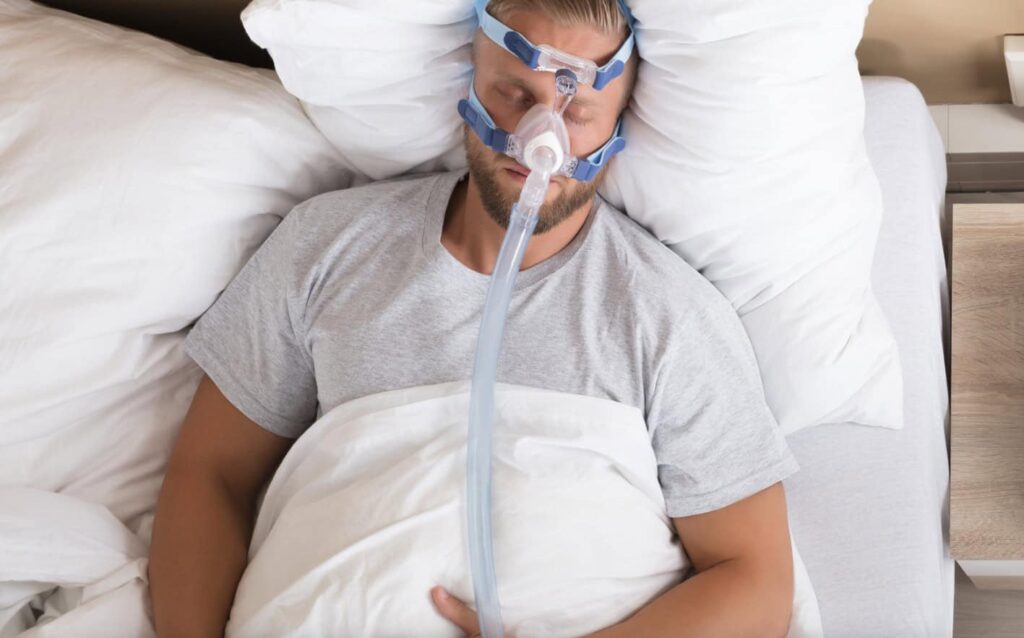Understanding Home Sleep Studies
In recent years, the importance of sleep has gained significant recognition, particularly in relation to overall health and well-being. A home sleep study is a convenient and effective method for diagnosing sleep disorders, allowing individuals to monitor their sleep patterns in the comfort of their own homes. This approach has become increasingly popular in Perth, where many residents seek solutions for sleep-related issues.
Unlike traditional sleep studies conducted in a clinical setting, home sleep studies provide a more relaxed environment, which can lead to more accurate results. The process involves using portable monitoring devices that track various physiological parameters during sleep, including breathing patterns, heart rate, and oxygen levels.
What is a Home Sleep Study?
A home sleep study, also known as a home sleep apnea test (HSAT), is designed to diagnose sleep apnoea and other sleep disorders. Patients are provided with a small device that they wear overnight, which records data about their sleep patterns. This data is then analysed by a sleep specialist to determine if a sleep disorder is present.
Home sleep study Perth offer a convenient, effective, and cost-efficient way to diagnose sleep disorders in Perth. By understanding the benefits, booking process, and interpreting results, individuals can take proactive steps towards improving their sleep health. With the right support and treatment, better sleep can lead to enhanced quality of life and overall well-being.
Home sleep studies are particularly beneficial for individuals who may find it challenging to spend a night in a sleep clinic. They offer a level of convenience and comfort that can lead to more natural sleep patterns, providing a clearer picture of a person’s sleep health.

How Does a Home Sleep Study Work?
The process of conducting a home sleep study is straightforward. After an initial consultation with a healthcare professional, the patient is given a portable monitoring device. This device typically includes sensors that measure airflow, oxygen saturation, and heart rate. It is essential to follow the instructions provided to ensure accurate readings.
Once the device is set up, the patient simply goes to bed as usual. The device will record data throughout the night, which is then returned to the healthcare provider for analysis. Results are usually available within a few days, allowing for timely diagnosis and treatment options.
Read more on: How to Book a Sleep Testing Perth Appointment Near You
Benefits of Home Sleep Studies
Home sleep studies offer numerous advantages over traditional sleep studies. Understanding these benefits can help individuals make informed decisions about their sleep health.
Convenience and Comfort
One of the most significant benefits of a home sleep study is the convenience it provides. Patients can sleep in their own beds, surrounded by familiar surroundings, which can lead to a more restful night. This comfort is particularly important for individuals who may experience anxiety in clinical settings.
Additionally, the process eliminates the need for travel to a sleep clinic, saving time and reducing stress. Patients can schedule their sleep study at a time that suits them, making it easier to fit into busy lifestyles.
Cost-Effectiveness
Home sleep studies are often more cost-effective than traditional in-lab studies. The reduced overhead costs associated with home testing can lead to lower fees for patients. This affordability makes it easier for individuals to seek help for sleep disorders without the burden of high medical expenses. Learn more about affordability on https://pmc.ncbi.nlm.nih.gov/articles/PMC6932010/
Furthermore, many health insurance plans cover home sleep studies, making them an accessible option for a broader range of individuals.
Timely Results and Treatment
Another advantage of home sleep studies is the speed at which results can be obtained. After returning the monitoring device, patients typically receive their results within a few days. This quick turnaround allows for prompt diagnosis and the initiation of treatment if necessary.
Early diagnosis of sleep disorders can significantly improve an individual’s quality of life, as it enables timely intervention. Whether through lifestyle changes, continuous positive airway pressure (CPAP) therapy, or other treatments, addressing sleep issues sooner rather than later can lead to better health outcomes.
Who Should Consider a Home Sleep Study?
Home sleep studies are suitable for a wide range of individuals, particularly those who exhibit symptoms of sleep disorders. Recognising the signs can be the first step towards improving sleep quality and overall health.

Common Symptoms of Sleep Disorders
Individuals experiencing persistent snoring, daytime fatigue, or difficulty concentrating may benefit from a home sleep study. Other symptoms include gasping or choking during sleep, restless legs, and frequent awakenings during the night. If these signs are present, it may be time to consult a healthcare professional.
Additionally, those with a family history of sleep disorders or underlying health conditions, such as obesity or cardiovascular disease, may also be at a higher risk for sleep-related issues. In such cases, a home sleep study can provide valuable insights into their sleep health.
Consulting a Healthcare Professional
Before booking a home sleep study, it is essential to consult a healthcare professional. A thorough assessment will help determine if a home sleep study is appropriate based on individual symptoms and medical history. This consultation can also provide an opportunity to discuss any concerns and ask questions about the process.
Healthcare professionals can offer guidance on the best course of action, ensuring that patients receive the most effective care for their sleep issues.
How to Book a Home Sleep Study in Perth
Booking a home sleep study in Perth is a straightforward process. With several healthcare providers offering these services, individuals can easily find an option that suits their needs.
Finding a Reputable Provider
Start by researching reputable sleep clinics or healthcare providers in Perth that offer home sleep studies. Look for providers with positive reviews and testimonials, as well as those that are accredited by relevant medical boards. This ensures that the services provided meet high standards of care.
It is also beneficial to seek recommendations from healthcare professionals or friends who have undergone similar procedures. Personal experiences can provide valuable insights into the quality of care and service offered by different providers.
Initial Consultation
Once a provider has been selected, the next step is to schedule an initial consultation. During this appointment, the healthcare professional will assess the patient’s symptoms and medical history, determining if a home sleep study is appropriate. They will also explain the process, answer any questions, and provide instructions for the study. Click here to find more about symptoms.
This consultation is crucial for ensuring that the patient is well-informed and comfortable with the upcoming sleep study. It is also an opportunity to discuss any concerns regarding the monitoring device or the data collection process.
Preparing for the Home Sleep Study
Preparation for a home sleep study is relatively simple. Patients will receive specific instructions from their healthcare provider, which may include guidelines on what to wear, how to set up the monitoring device, and any pre-study considerations, such as avoiding alcohol or caffeine.
It is essential to follow these instructions closely to ensure accurate results. Patients should also ensure they have a quiet, comfortable sleeping environment to facilitate a good night’s sleep during the study.
Interpreting the Results
After the home sleep study is completed, the data collected will be analysed by a sleep specialist. Understanding the results is crucial for determining the next steps in managing any identified sleep disorders.
Understanding the Data
The results of a home sleep study typically include information on the frequency and severity of apnoea episodes, oxygen saturation levels, and overall sleep quality. These metrics provide valuable insights into an individual’s sleep health.
Patients should schedule a follow-up appointment with their healthcare provider to discuss the results. This consultation will help clarify any questions and outline potential treatment options based on the findings.
Next Steps and Treatment Options
Depending on the results of the home sleep study, various treatment options may be recommended. For individuals diagnosed with sleep apnoea, CPAP therapy is a common and effective treatment. This involves using a machine that delivers continuous airflow to keep the airways open during sleep.
In addition to CPAP therapy, lifestyle modifications such as weight loss, positional therapy, and avoiding alcohol and sedatives may also be suggested. Each treatment plan will be tailored to the individual’s specific needs, ensuring the best possible outcomes.
Conclusion
For anyone experiencing symptoms of sleep disorders, seeking help through a home sleep study can be a significant first step towards restful nights and healthier days.

